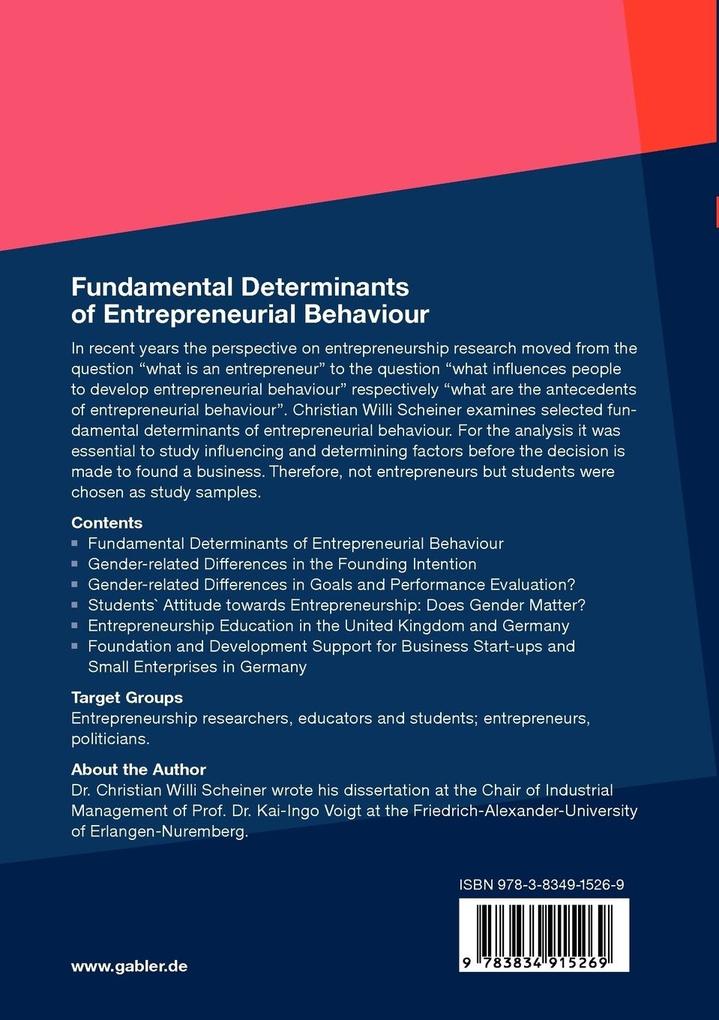
Zustellung: Fr, 18.07. - Mo, 21.07.
Versand in 2 Tagen
VersandkostenfreiBestellen & in Filiale abholen:
Foreword In the academic field of entrepreneurship a multitude of research about the - tives regarding the new venture creation has been conducted. But we still don t understand how people especially students develop their founding intentions. The knowledge about influencing factors that foster or impede this process and about differences between male and female entrepreneurs is also not sufficient. In this remarkable book the author, Christian Scheiner, presents the results of several empirical studies which he recently conducted. Based on an innovative model which integrates proven theoretical concepts like planned behaviour , organisational socialisation , gender theory and social learning , the author is able to identify main influencing factors upon the founding intentions of (- tential) academic entrepreneurs. He also delivers empirical evidence that the founding motives as well as the intentions itself differ between German and Br- ish students. These and many other empirical results that are presented and discussed in this book are finally transformed into recommendations of how to enhance entrep- neurial education, especially in universities. The author finally presents a survey of entrepreneurial initiatives that are already fostering the entrepreneurial acti- ties of academic and non-academic founders in Germany. Based on excellent research, this book offers new and innovative insights in the early phases of the new venture creation process. It can be highly recomme- ed for researchers as well as practitioners who are engaged in the field of ent- preneurial education. Prof. Dr. Kai-Ingo Voigt
Inhaltsverzeichnis
Fundamental Determinants of Entrepreneurial Behaviour. - Gender-related Differences in the Founding Intention. - Gender-related Differences in Goals and Performance Evaluation? . - Students' Attitude towards Entrepreneurship: Does Gender Matter? . - Entrepreneurship Education in the United Kingdom and Germany. - Foundation and Development Support for Business Start-ups and Small Enterprises in Germany. - Concluding Remarks.
Produktdetails
Erscheinungsdatum
13. August 2009
Sprache
englisch
Auflage
2009
Seitenanzahl
240
Autor/Autorin
Christian Willi Scheiner
Verlag/Hersteller
Produktart
kartoniert
Gewicht
354 g
Größe (L/B/H)
210/148/15 mm
ISBN
9783834915269
Entdecken Sie mehr
Bewertungen
0 Bewertungen
Es wurden noch keine Bewertungen abgegeben. Schreiben Sie die erste Bewertung zu "Fundamental Determinants of Entrepreneurial Behaviour" und helfen Sie damit anderen bei der Kaufentscheidung.










